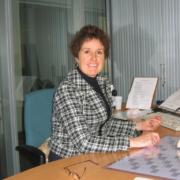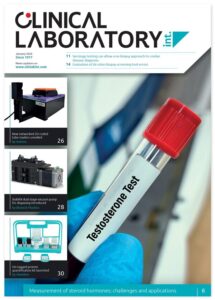Opinion versus facts: the need for evidence-based medicine
Charlie Gard, who recently died just before his first birthday, was admitted to Great Ormond Street Hospital (GOSH) when he was two months old. Founded 265 years ago, and classed as one of the top four pediatric hospitals globally, GOSH has a dedicated international workforce, including some of the world’s leading doctors, surgeons and pediatric nurses. As well as offering tireless and expert care for its young patients, GOSH is involved in over 800 research projects.
Charlie was provisionally diagnosed with mitochondrial DNA depletion syndrome (MDDS) soon after admission, and genetic tests confirmed the diagnosis. The baby had two mutations affecting his RRM2B gene, preventing the synthesis of ribonucleotide reductase, an enzyme that plays a key role in maintaining the mitochondrial deoxinucleotide triphosphate pool needed for mitochondrial DNA synthesis. Only 15 other patients have been described with RRM2B mutations in the medical literature: in all cases rapid encephalopathy and muscle breakdown caused death within a few months of onset. A team of GOSH experts did consider experimental nucleoside bypass therapy (NBT) when the baby was five months old (ethical approval was first necessary), but they concluded that his rapidly deteriorating condition did not warrant such an intervention.
One can sympathize with the child’s parents as they desperately searched for a possible cure for their terminally ill infant, waging a protracted litigation to have him treated with experimental NBT in the US by Columbia University’s Dr Michio Hirano. One cannot, however, condone the belligerent demands of around 200, 000 members of the medically ignorant public that Charlie be released from experts at GOSH, or the interventions of ill-informed public figures such as Donald Trump and even the Pope.
Dr Hirano claimed that NBT – he ‘retains a financial interest’ in the compounds he prescribes – could benefit the patient. His relevant work concerns the TK2 mutation, a more frequent cause of MDDS with a more varied prognosis. His team has recently published a paper showing that NBT is beneficial in TK2 deficient mice, and 18 patients, mostly in Italy and Spain, are undergoing experimental treatment. No peer-reviewed papers on patient prognosis have yet been published, and there are no ongoing clinical trials with NBT. Furthermore without seeing Charlie, the GOSH team or medical notes until the child was already 11 months old, Dr Hirano (and the popular press) blamed the legal procedure, declaring that it was now too late for treatment!
An evidence-based cure for MDDS is surely needed: hopefully that will be Charlie’s legacy.



